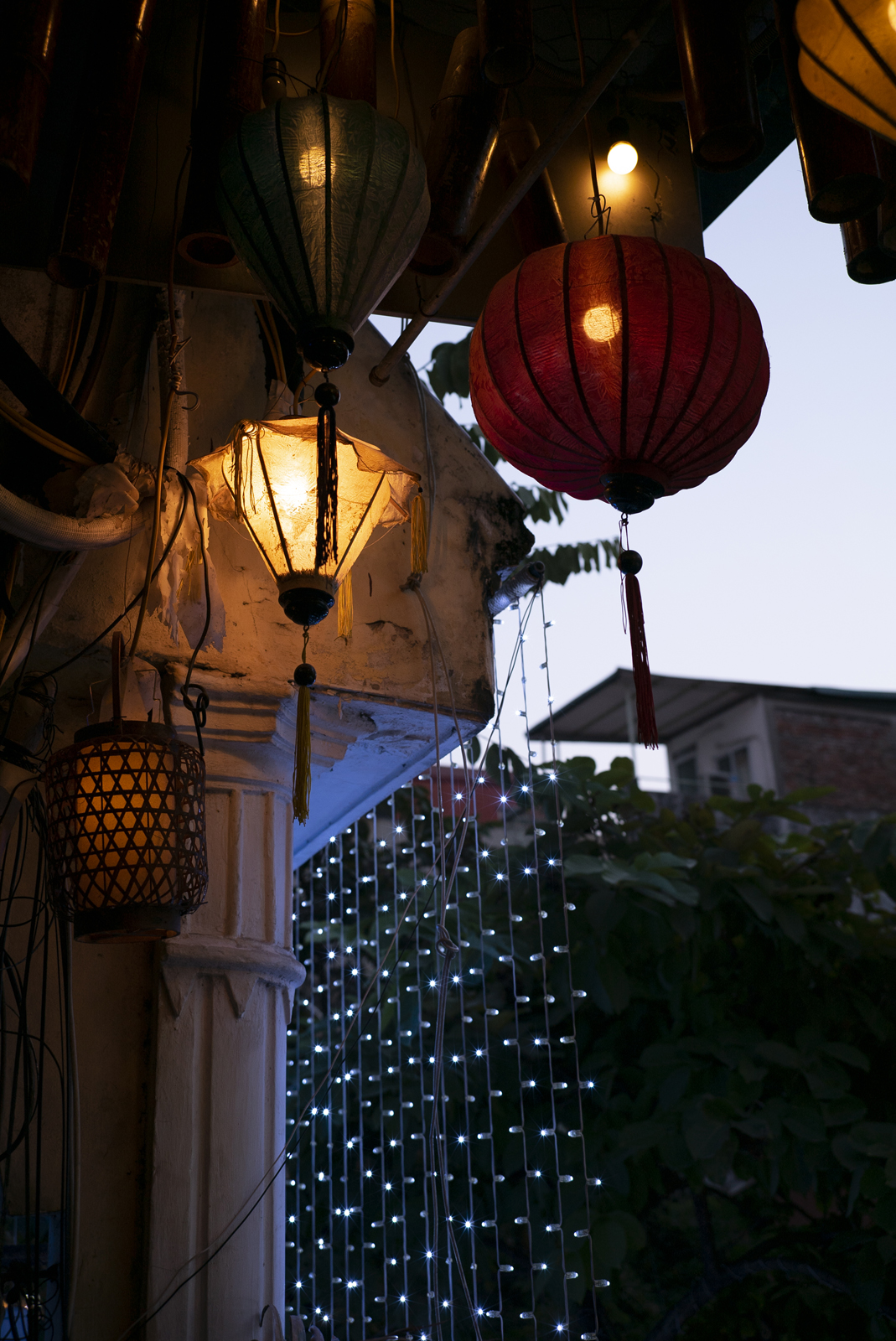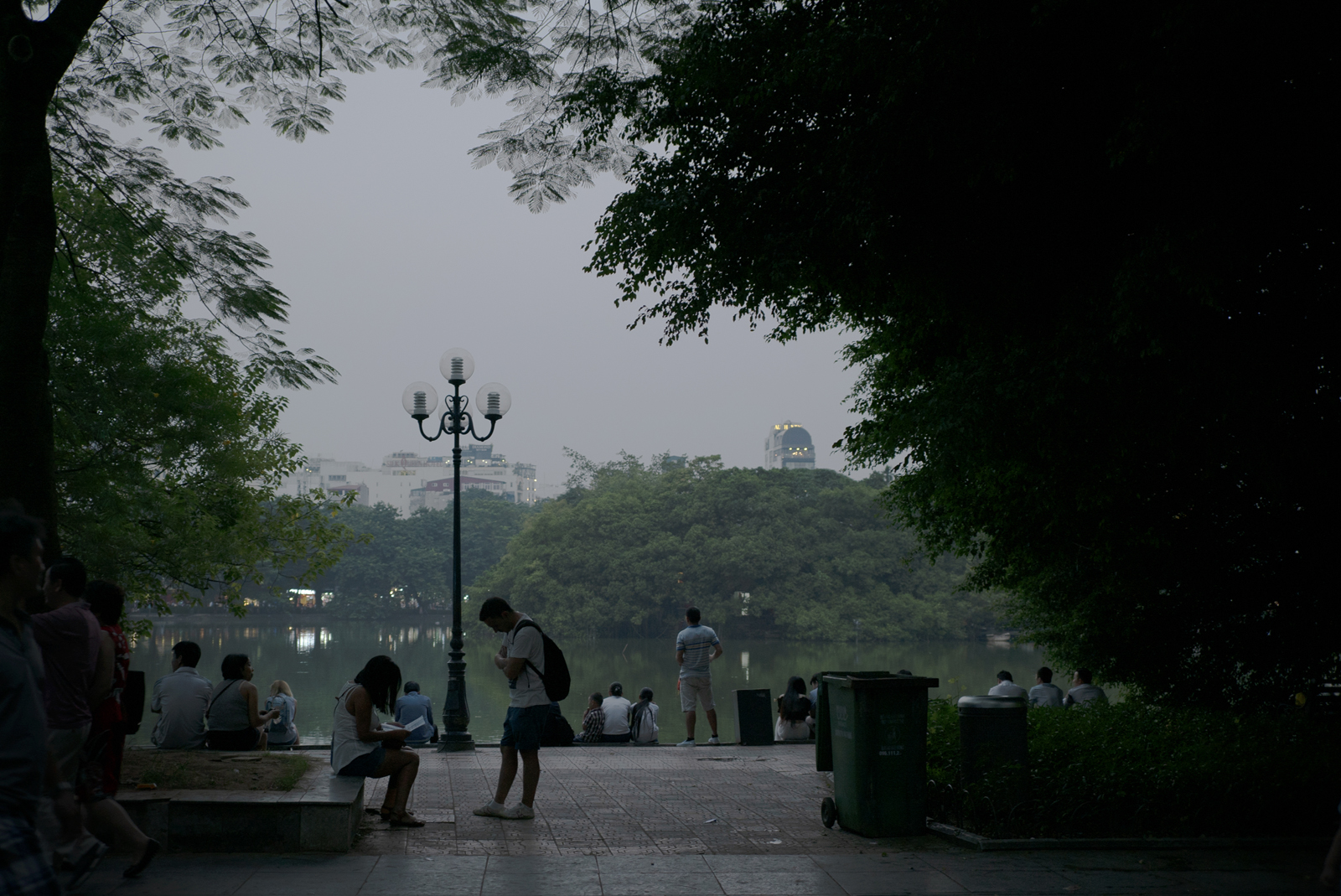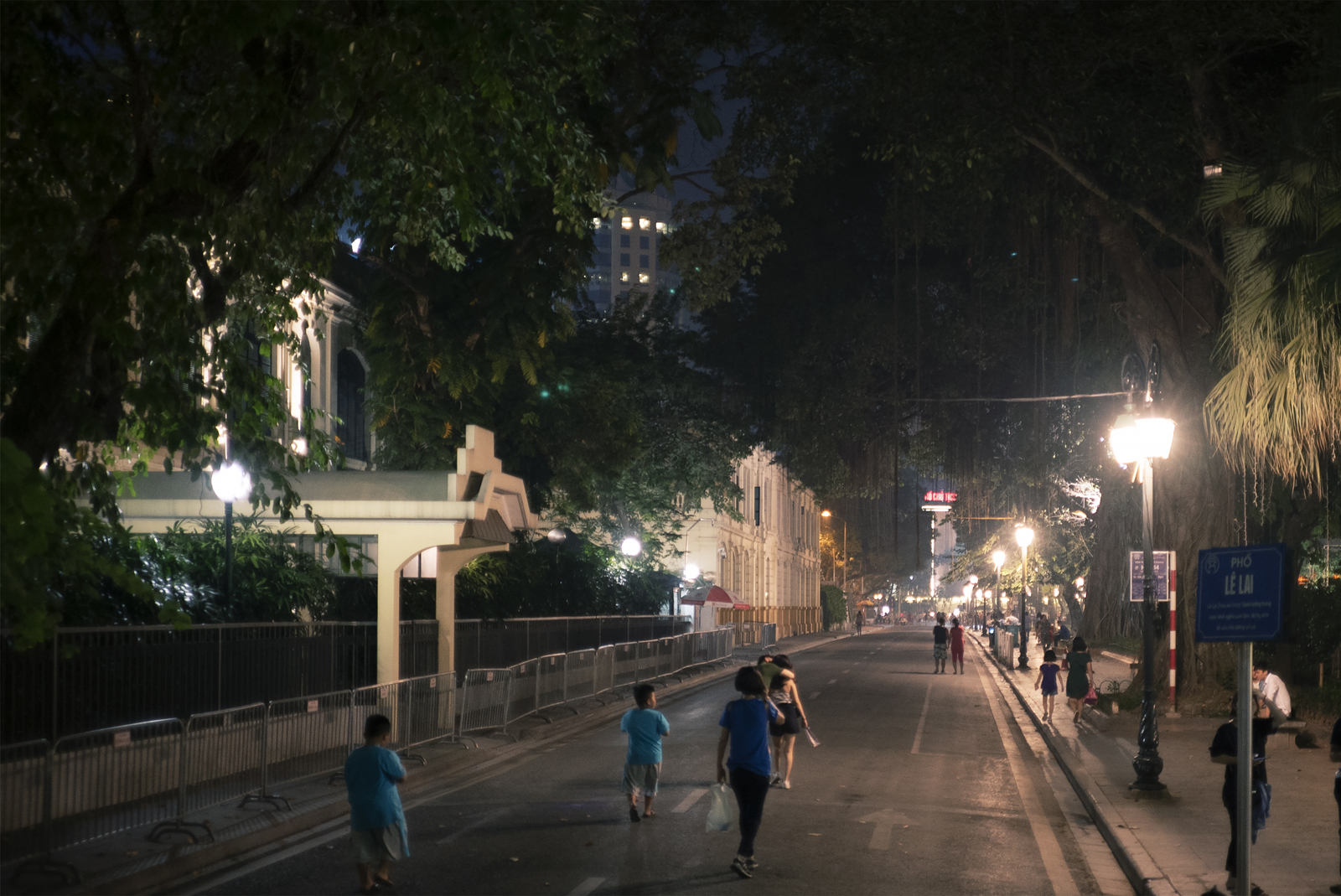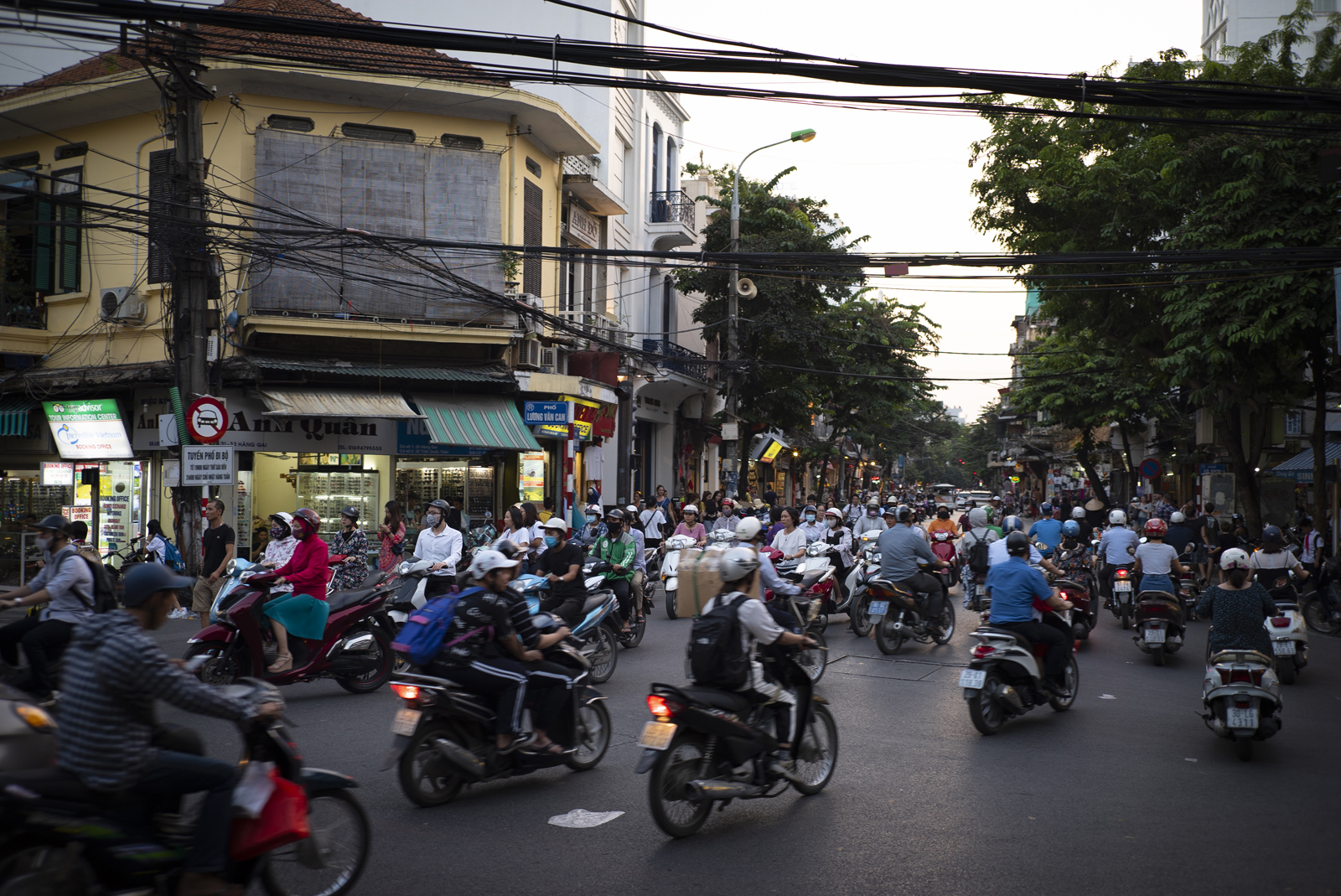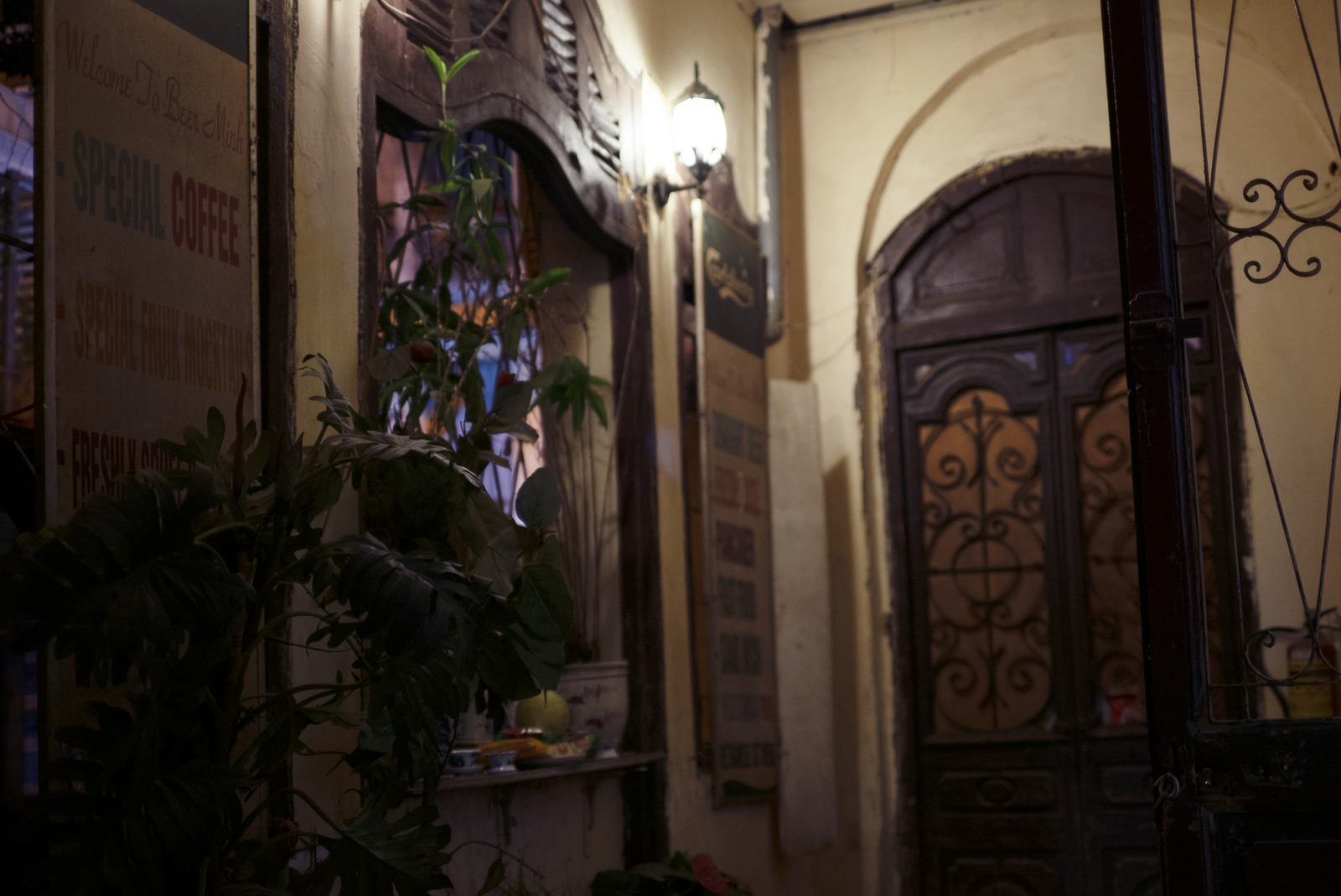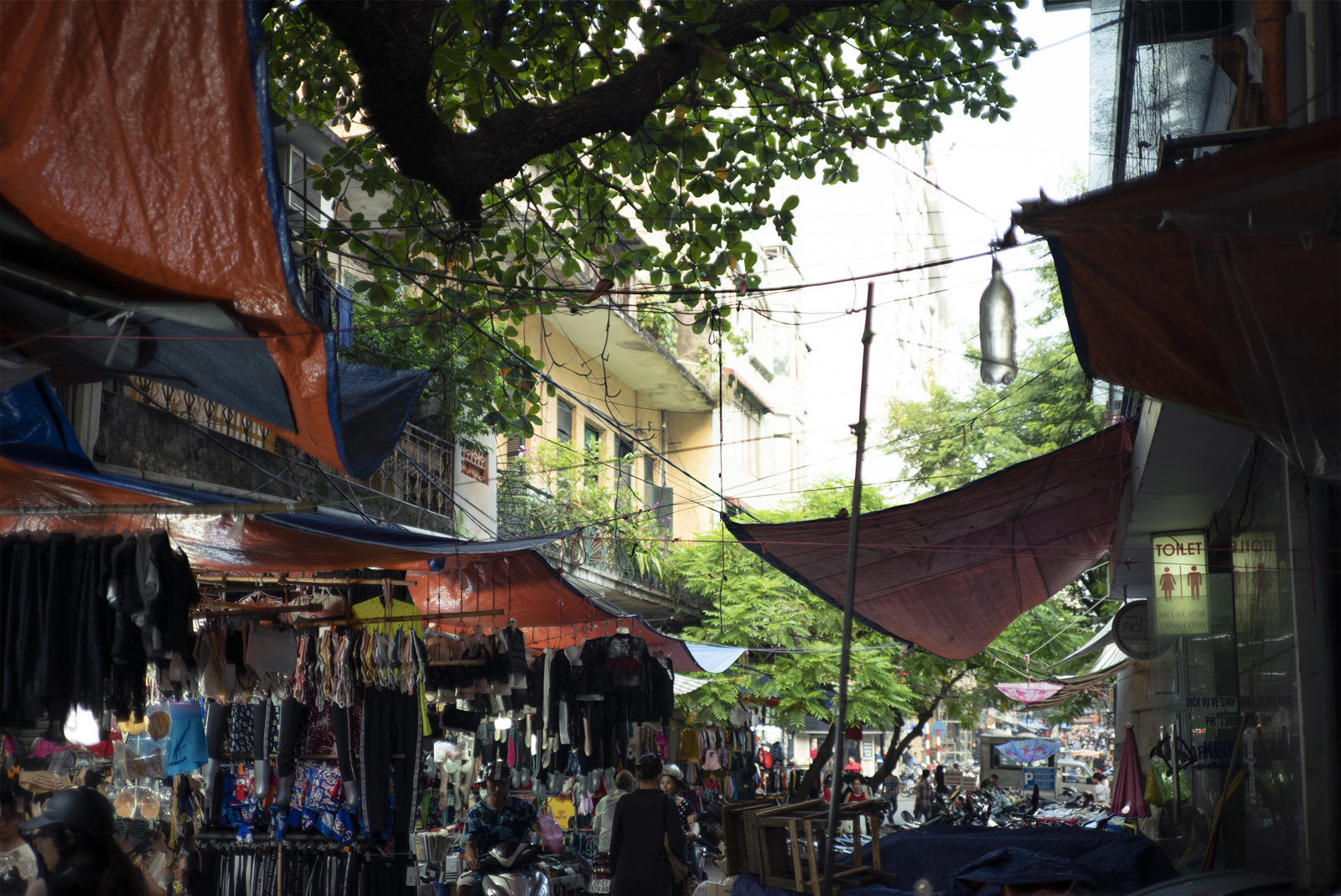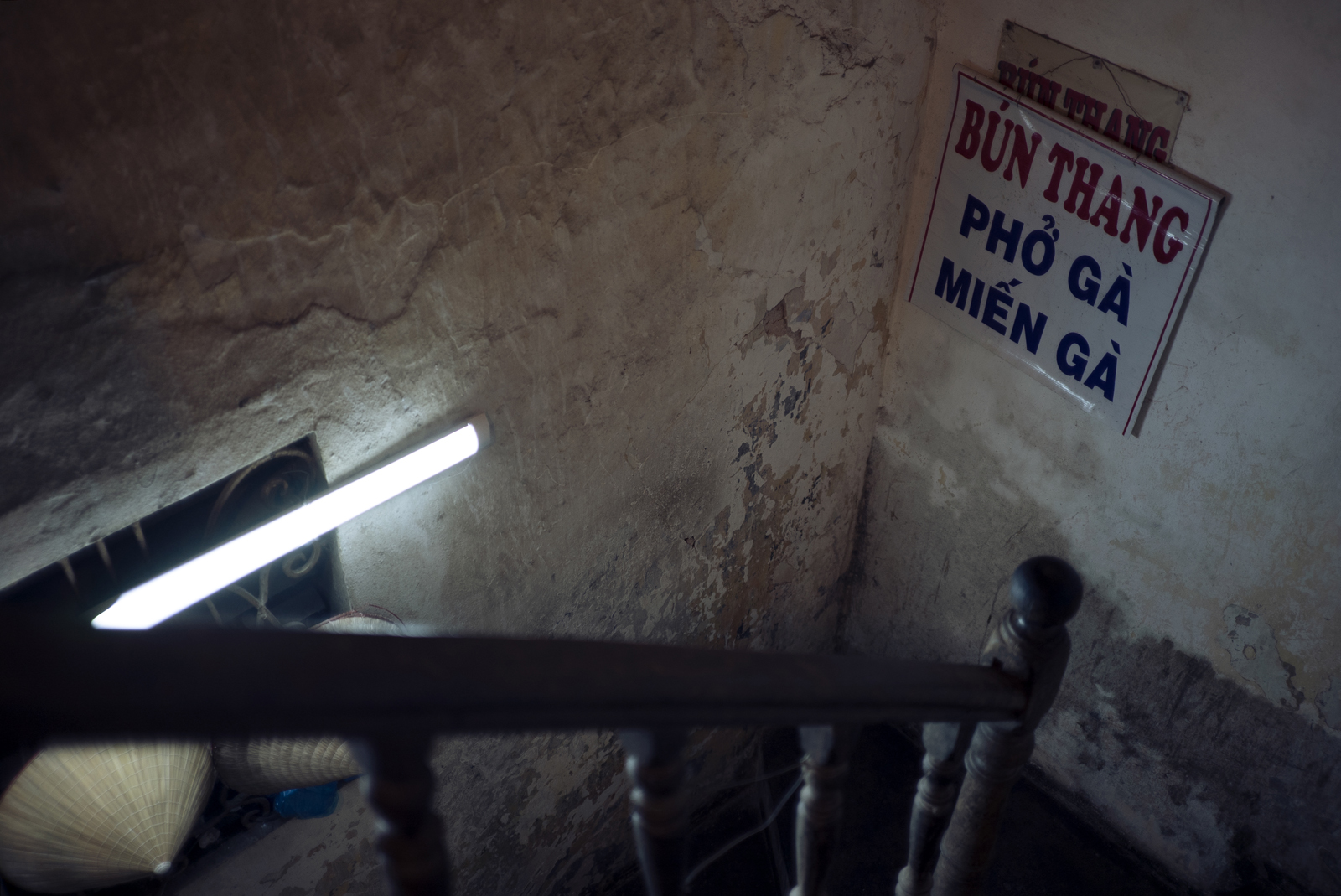In Hanoi, the whole street is teeming with restaurants: passing by on the back of a bicycle, rolled along in a cart, tucked in between buildings. Any spare bit of sidewalk is dotted with child-sized plastic stools, with whole families sitting, eating; and no matter how carefully you walk (dodging motorbikes, families, carts and bicycles loaded with knock off designer clothes, charcoal grills and teakettles steaming on the street) you always feel a half-step from disaster: from ruining someone’s lunch; from stepping into a small pot of glowing coals.
Everywhere, people are eating bowls of noodles, dripping with fat, with herbs. They eat strips of dried and roasted squid, piled high onto thin plates between groups who sit cross-legged or squatting on rugs which have been laid down on the sidewalk as if it was never intended as a pedestrian thoroughfare. They eat donuts speared on sticks; thin porridge made of rice or blended seafood or both; piles of snails, shrimp, mussels, long clams. Rice noodles, leaving small puddles of fish sauce and lime, scallions and and chili rinds. Tissue paper dumplings with pork and mushroom; fried shallots like gold dusted across their tops. Meals that can be eaten in a minute and a half but leave every one of your cells just singing.
In Hanoi, we were more often than not seated at low long tables with other families, on sidewalks or in back-alley rooms where we were taller, whiter, and clumsier than anyone else there. If the families spoke English, they talked to us. They asked us where we were from, and what we were doing in Vietnam. Just Hanoi? they would ask, incredulous. Yes, we’d respond. We’ve been doing this for a long time – we’re tired!
And then, after another stunned second, we’ll have to come back.
And though for these avid pho enthusiasts the food might have been the star of Hanoi, this was also salient: that we spent the week promising strangers we would return to their country for longer, and explore more of it.
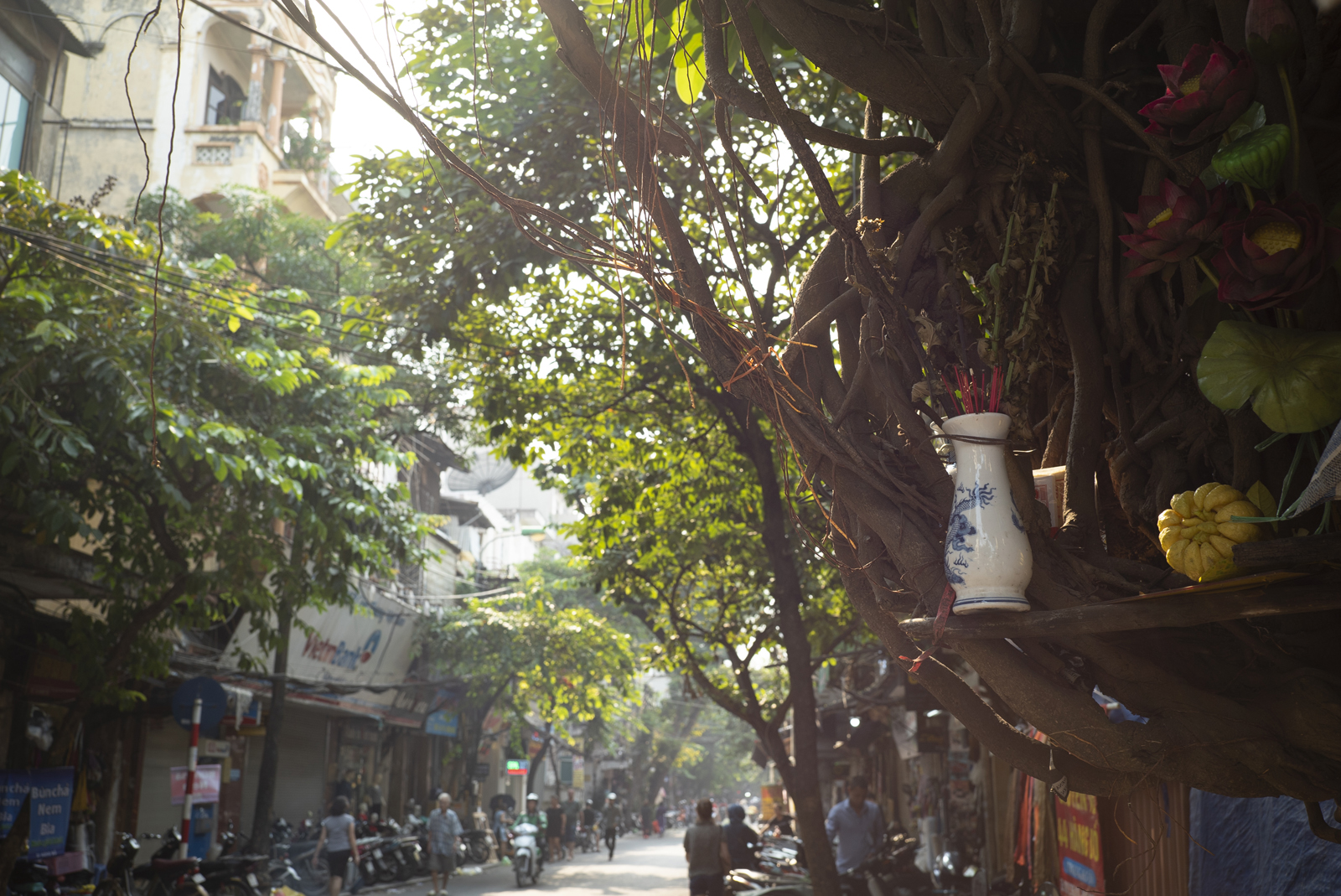
This was a huge relief, because as everyone knows, there are rules written down somewhere (they must be; how else could everyone know them so well?) about who can take what kind of trip, and when. These rules consider age, race, socioeconomic status, career path, and parenthood. They tell us, in no uncertain terms, when it is okay to explore, and how. And though we tried not to, Sam and I did embark on this trip with a sense that it was an ending of some kind; a transition to a more formal phase of adulthood.
But in Greece, we met a teacher who seemed dazed with freedom during a summer of exploring the islands without her son or his other parent. In Chiang Mai, we saw a very old woman traveling alone, paper map in one hand and a bag of fruit from the corner stand in the other. In Leh, we saw a group of Brazilian tourists with a four-year-old boy. In Hanoi, we were seated at a bar next to a German family with two toddlers.
So it turns out there is no wrong way to see somewhere new. There is no impossible age to explore. There is no prize for forgoing adventure, and the Church of Should (I should! We should! You should!), though it is comforting, will never serve you spicy soup, raw beef cooking in the steam with a bouquet of scallions, a language you will never speak rising like birdsong around you in the sweltering Asian night. (I want my imaginary future children, the children because of whom I had do this while you still can, to try that soup. To hear that language. To have their cheeks pinched by an old woman carrying a basket of dragonfruit on the back of her bicycle. To feel uncomfortably foreign, and homesick, and have awkward interactions that make them question their own perspectives. To learn how to keep themselves safe in unfamiliar situations. To understand the necessity of sympathy, empathy, curiosity.)
Our twenty-six-hour-travel-marathon back to United States soil was long, and surreal, and we were exhausted by the end of it. It felt like a transition of a monumental variety.
But it didn’t feel like an ending.
